News
-
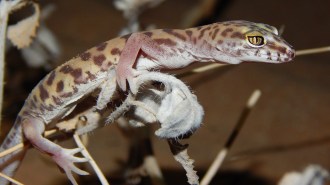 Animals
AnimalsHow a western banded gecko eats a scorpion
New high-speed video details how usually mild-mannered geckos shake and incapacitate their venomous prey.
-
 Health & Medicine
Health & MedicineRacial bias can seep into U.S. patients’ medical notes
Black patients were more often described negatively in medical notes than white patients, which may impact care.
-
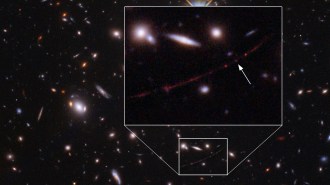 Astronomy
AstronomyA star nicknamed ‘Earendel’ may be the most distant yet seen
Analyzing Hubble Space Telescope images revealed a star whose light originates from about 12.9 billion light-years away, researchers say.
By Liz Kruesi -
 Climate
ClimateA UN report says stopping climate change is possible but action is needed now
We already have a broad array of tools to reduce global greenhouse gas emissions in half by 2030, a new report finds. Now we just have to use them.
By Carolyn Gramling and Nikk Ogasa -
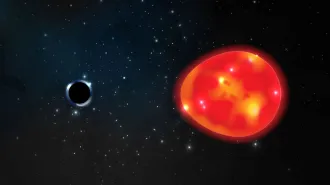 Space
SpaceBinary stars keep masquerading as black holes
The drive to find black holes in ever-larger astronomy datasets is leading some researchers astray.
By Liz Kruesi -
 Humans
HumansWhere you grew up may shape your navigational skills
People raised in cities with simple, gridlike layouts were worse at navigating in a video game designed for studying the brain.
-
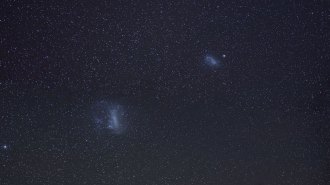 Astronomy
AstronomyWhen the Magellanic Clouds cozy up to each other, stars are born
The Magellanic Clouds, the two closest star-making galaxies to the Milky Way, owe much of their stellar creativity to each other.
By Ken Croswell -
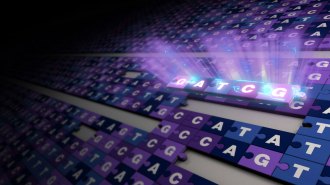 Genetics
GeneticsWe finally have a fully complete human genome
Finding the missing 8 percent of the human genome gives researchers a more powerful tool to better understand human health, disease and evolution.
-
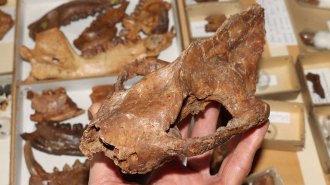 Paleontology
PaleontologyMammals’ bodies outpaced their brains right after the dinosaurs died
Fossils show that mammals’ brains and bodies did not balloon together. The animals’ brains grew bigger later.
-
 Anthropology
AnthropologyNorth America’s oldest skull surgery dates to at least 3,000 years ago
Bone regrowth suggests the man, who lived in what’s now Alabama, survived a procedure to treat brain swelling by scraping a hole out of his forehead.
By Bruce Bower -
 Chemistry
ChemistryGrainy ice cream is unpleasant. Plant-based nanocrystals might help
The growth of large ice crystals in ice cream produces a coarse texture. A cellulose nanocrystal stabilizer could help keep the unwelcome iciness away.
By Anna Gibbs -
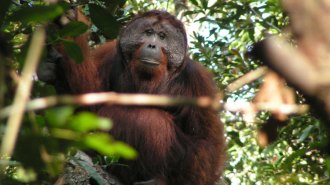 Anthropology
AnthropologySocial mingling shapes how orangutans issue warning calls
The new findings hint at how modern language may have taken root in sparse communities of ancient apes and humans.
By Bruce Bower